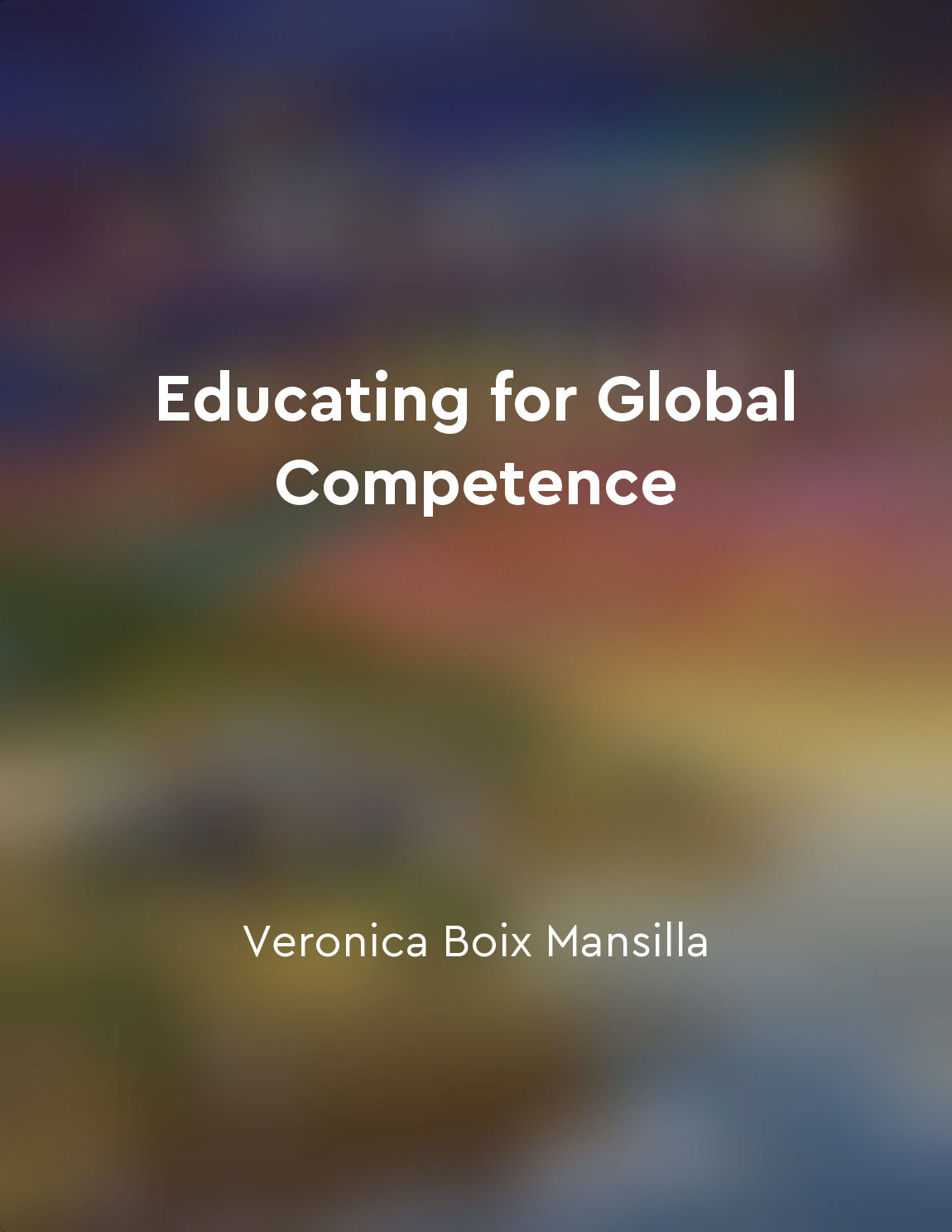Global competence involves taking action to address global challenges from "summary" of Educating for Global Competence by Veronica Boix Mansilla,Anthony Wells Jackson
Global competence requires more than just understanding the complexities of global challenges; it also demands that individuals take meaningful actions to address these issues. It is not enough to simply be aware of the problems facing the world; one must also be willing to work towards finding solutions and making a positive impact. This concept highlights the importance of active engagement and participation in efforts to create a more sustainable and equitable global society. Taking action to address global challenges involves a range of activities, from raising awareness and advocating for change to implementing practical solutions on the ground. This can include organizing community events, participating in advocacy campaigns, volunteering with organizations that work on global issues, or even starting one's initiatives to address a particular challenge. By actively engaging with global challenges in these ways, individuals can make a real difference and contribute to positive change on a global scale. One key aspect of taking action to address global challenges is the need for collaboration and cooperation. Many global issues are interconnected and require collective efforts to be effectively addressed. This means working with others, both locally and globally, to leverage resources, expertise, and networks in order to achieve common goals. By collaborating with diverse stakeholders and building partnerships, individuals can amplify their impact and create more sustainable and lasting solutions to complex global challenges. In addition to collaboration, taking action to address global challenges also requires a commitment to continuous learning and adaptation. The global landscape is constantly evolving, and new challenges are always emerging. To be effective in addressing these challenges, individuals must be willing to stay informed, open to new ideas, and flexible in their approaches. This means being willing to learn from failures, adjust strategies as needed, and seek out new opportunities for growth and innovation.- The concept of global competence involving taking action to address global challenges underscores the importance of proactive engagement and a commitment to making a difference in the world. By moving beyond passive awareness and into active participation, individuals can contribute to positive change and help build a more sustainable and equitable global society. Through collaboration, learning, and adaptation, individuals can play a crucial role in addressing the complex and interconnected challenges facing the world today.


